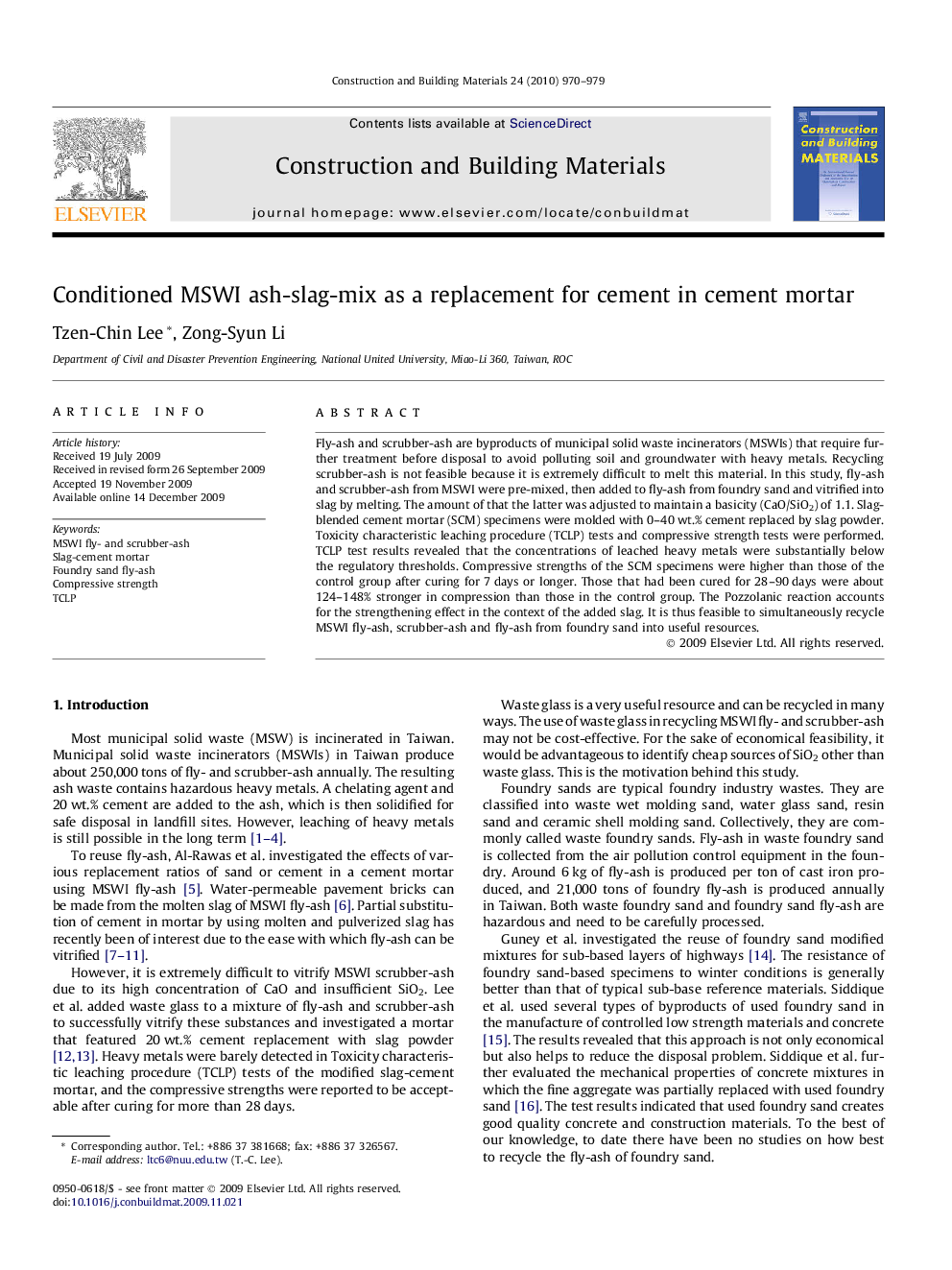| Article ID | Journal | Published Year | Pages | File Type |
|---|---|---|---|---|
| 260261 | Construction and Building Materials | 2010 | 10 Pages |
Abstract
Fly-ash and scrubber-ash are byproducts of municipal solid waste incinerators (MSWIs) that require further treatment before disposal to avoid polluting soil and groundwater with heavy metals. Recycling scrubber-ash is not feasible because it is extremely difficult to melt this material. In this study, fly-ash and scrubber-ash from MSWI were pre-mixed, then added to fly-ash from foundry sand and vitrified into slag by melting. The amount of that the latter was adjusted to maintain a basicity (CaO/SiO2) of 1.1. Slag-blended cement mortar (SCM) specimens were molded with 0-40Â wt.% cement replaced by slag powder. Toxicity characteristic leaching procedure (TCLP) tests and compressive strength tests were performed. TCLP test results revealed that the concentrations of leached heavy metals were substantially below the regulatory thresholds. Compressive strengths of the SCM specimens were higher than those of the control group after curing for 7Â days or longer. Those that had been cured for 28-90Â days were about 124-148% stronger in compression than those in the control group. The Pozzolanic reaction accounts for the strengthening effect in the context of the added slag. It is thus feasible to simultaneously recycle MSWI fly-ash, scrubber-ash and fly-ash from foundry sand into useful resources.
Keywords
Related Topics
Physical Sciences and Engineering
Engineering
Civil and Structural Engineering
Authors
Tzen-Chin Lee, Zong-Syun Li,
